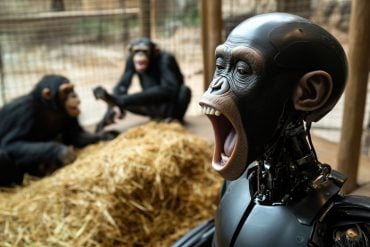Summary: A new study reveals that an eight-week vegan diet can reduce biological age estimations based on DNA methylation levels. The study, involving 21 pairs of adult identical twins, found that participants on a vegan diet showed decreases in biological age and the ages of their heart, hormone, liver, inflammatory, and metabolic systems.
Those on an omnivorous diet did not show these decreases. The results suggest a vegan diet may positively impact aging, although weight loss differences may have influenced the findings.
Key Facts:
- An eight-week vegan diet reduced biological age estimations in a small study.
- DNA methylation levels, which are linked to aging, decreased in vegan participants.
- The vegan diet showed benefits for heart, hormone, liver, inflammatory, and metabolic systems.
Source: BMC
Eating a vegan diet for eight weeks is associated with reductions in biological age estimations based on levels of DNA methylation — a type of chemical modification of DNA (known as an epigenetic modification) that alters gene expression but not DNA itself. Previous research has reported that increased DNA methylation levels are associated with aging.
The findings, which are based on a small randomised controlled trial of 21 pairs of adult identical twins, are published in BMC Medicine.

Varun Dwaraka, Christopher Gardner and colleagues investigated the molecular effects of a short-term vegan diet by instructing one half of each twin pair to eat an omnivorous diet for eight weeks — including between 170 and 225 grams of meat, one egg, and one and a half servings of dairy each day — and the other half to eat a vegan diet for the same length of time.
The sample was 77 percent women (32), and participants were 40 years old on average and had an average body mass index of 26 kilograms per metres squared.
For the first four weeks of the study participants ate meals that had been prepared for them and for the second four weeks participants ate meals that they had prepared themselves, after receiving nutrition classes from health educators.
The authors investigated the impacts of diet on levels of DNA methylation by analysing blood samples collected from participants at baseline, week four, and week eight of the study. They used DNA methylation levels to infer the biological ages of participants and their organ systems.
By the end of the study the authors observed decreases in estimates of biological age — known as epigenetic ageing clocks — in participants who ate a vegan diet but not among those that ate an omnivorous diet.
They also observed decreases in the ages of the heart, hormone, liver, and inflammatory and metabolic systems of participants who ate a vegan, but not an omnivorous diet, for eight weeks.
The authors caution that the extent to which the differences observed between participants who ate different diets can be attributed to their dietary compositions is unclear. They note that participants who ate a vegan diet lost two kilograms more on average than those who ate an omnivorous diet due to differences in the calorie contents of meals provided during the initial four weeks of the study.
They suggest that these weight loss variations could have contributed to the observed differences in epigenetic age between both groups. Further research is needed to investigate the relationship between dietary composition, weight, and aging, in addition to the long-term effects of vegan diets, they add.
About this genetics, diet, and aging research news
Author: Deborah Kendall-Cheeseman
Source: BMC
Contact: Deborah Kendall-Cheeseman – BMC
Image: The image is credited to Neuroscience News
Original Research: The findings will be presented in BMC Medicine






